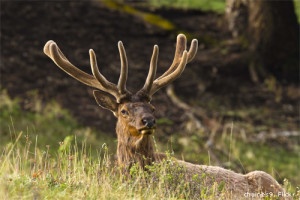We have much more to do and your continued support is needed now more than ever.
Where is the climate debate?: New Hampshire
 Fall is a beautiful time in New Hampshire with leaves ablaze, sap rising and 273 lakes and ponds sparkling in the warm sun.
Fall is a beautiful time in New Hampshire with leaves ablaze, sap rising and 273 lakes and ponds sparkling in the warm sun.
2012 is likely to stack up as the warmest year on record, but have we forgotten those stultifying days of this past summer? Listening to the candidates during this campaign season one has to assume they’ve forgotten the searing, dry summer much of the country just suffered through, a painful reminder of how the planet is warming up and causing serious harm. Climate changes was ignored in the last of three presidential debates that wrapped up this week.
People of the Granite State are not immune from the impacts. They barely got out a snow shovel last winter. The extent of snow cover across the Northern Hemisphere has decreased by approximately three to nine percent since 1978, says the National Oceanic and Atmospheric Administration (NOAA), trends that are likely to continue. And NOAA scientists project that by the end of the century, parts of the Northeast will lose as many as half of their snow-covered days each year.
The warming climate is taking its toll in New Hampshire:
- The Northeast Regional Climate Center at Cornell University reported in August that in the Northeast, January through July 2012 was the warmest seven-month period since 1895, the year systematic record keeping began.
- For the first time in recorded history, Great Bay, a large tidal inlet between New Hampshire and Maine popular with winter smelt anglers, did not freeze over.
- Researchers studying moose mortality in NH say that it used to be typical for a moose to carry some 30,000 ticks, but the population of ticks has been magnified by climate change and warmer winter temperatures. Researchers have found that as many as 150,000 of the parasites can plague a moose at once. The blood-feeding winter tick causes 41 percent of all moose deaths in New Hampshire. With the populations of moose in decline, the associated reduction in annual hunting permits, and climate change impacts such as increased ticks, are threatening both a species and a cherished pastime for many hunters in New Hampshire.
- Climate change-induced sea level rise will inundate coastal marshes that serve as nurseries for fish, including the striped bass that live in the ocean and migrate up coastal rivers to spawn in the spring.
- As lakes heat up, some fish cannot thrive in the warmer waters.
A few weeks ago, support for action came from America’s hunters and anglers when a poll of that community, people of every political persuasion, found that a majority (59 percent) agrees that global warming is happening now and is causing extreme weather such as America’s hottest July on record. And they expect elected officials to act.
While candidates across the country debate issues like the future of Medicare, Afghanistan and the federal deficit, there’s rarely mention of our warming planet, much less a solution offered. Stemming climate change will take courageous steps. The presidential debates were not exactly a profile in climate change courage, so it falls to voters to demand more.





















